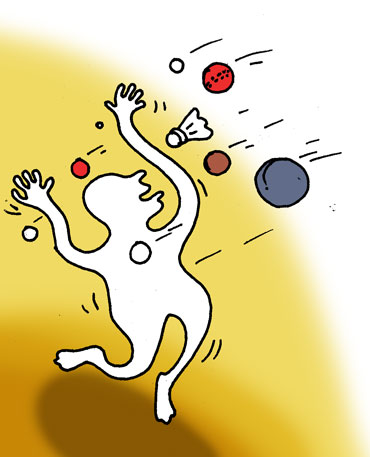 | « Back to article | Print this article |
6 lessons from a failed entrepreneur
Amarpreet Kalkat, founder of Ciafo, a software products start-up focused on building consumer products for the web shares the lessons he learnt while setting up the company.
Eighteen months ago, I began my start-up journey with an idealistic set of goals.
Part of that idealism also involved my general dislike for purely advertising-based business models.
In private conversations, I have said many a times that the day you see ads displayed on our products, you can well deduce that we have failed.
And this month, we had to do just that. Our plans of building revenues streams or raising seed money in a reasonable timeframe did not work out as planned. So now, if you see ads displayed on Frrole or Travelomy, do not be surprised. This is a part of our first failure phase.
There are, however, some positive things about it.
We are now making money to afford a couple of interns at least. And by the end of this year, it might even become enough to afford a couple of full-time teammates. So maybe, it would work out better, we will see.
There were many lessons that we learned during this 18-month course.
Sharing some of them here, hopefully would help people learn a bit about what works around here and what does not.
Illustration: Dominic Xavier

Please click NEXT to continue reading...
1. Have a team
Start-ups are way too much work for lone founders. This one could/would be a deal breaker.
2. India is not Silicon Valley
If you are starting a consumer web product from India, be doubly prepped, India ain't Silicon Valley.
Yourstory's '2012 top 30 tech products from India' report has close to 70 per cent enterprise-focused products.
In the valley, the consumer-enterprise ratio would easily be the reverse.
3. Angel investors are extremely picky
Angel/seed stage scene in India is not very even.
These guys get to play extremely picky, and even then, you can expect pretty lopsided deal offers.
If, like us, you believe in 'fair deal or no deal', better be equipped to slug it out for a longer period.
The good thing here is that with the increasing number of accelerators, and with the entry of the likes of 500 start-ups, this is changing for better for the entrepreneur.
Illustration: Uttam Ghosh
4. Show them the money
Investors, anywhere, see the little green things a little too quick, but out here, it is pretty crazy.
You have much better chances of securing a round with four to five paying customers for a copycat product than for a 'we-are-going-to-change-the-world' product with good traction.
'It is to do with the risk averse Indian mindset', one of the humble VCs said once.
Illustration: Uttam Ghosh
5. Find a co-founder
Unless you start with a founding team, it is pretty tough to find co-founders along the way.
It is much easier to first get to a money-making point and then bring on board quasi-employee co-founders.
Illustration: Uttam Ghosh
6. Have a plan B
If you really mean to be around for a long time, have a Plan B where you can sustain yourself for as long as it takes. Too many people try too hard and then give up too soon.
Sharing these lessons here for others, but more than that for ourselves, so that we can come back and let the failure word stare us right in the face. Day in, day out. Till the day we succeed.
And succeed we will.
P.S. 1. For many people, being able to monetise from ads would hardly be a criteria of failure. And that is totally fine.
2. Failure is a relative term. Frrole is growing 30 to 40 per cent month on month, has more than 200,000 monthly visitors now and we are in the process of signing up our first paid customer. But ads were a failure point, and we have hit that, so failure it is for now, in our book.
Illustration: Dominic Xavier






